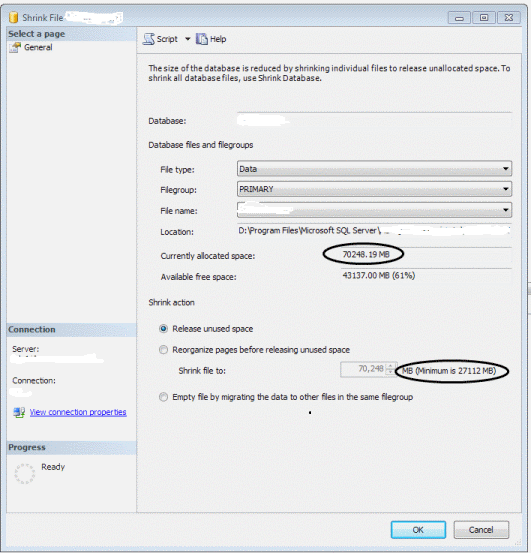I had a table with 70+ million records in a SQL Server database, I dropped that table (a one-time thing) to free up space on the disk, but it looks like the size didn't change much. I do see that I could shrink the db to a minimum.
Is that the way to do it?
The last time I did a shrink using SQL Server Management Studio, it took a few hours to complete. Is there a faster way?

